Professor Andrzej Nowak (Jagiellonian University)
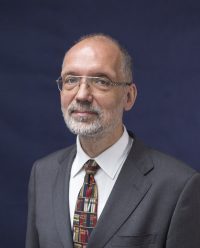
Born in 1960 in Kraków, he is a historian, head of the Department of History of Eastern Europe at the Jagiellonian University, full professor at the Institute of History of the Polish Academy of Sciences. He received the title of professor of humanities in January 2011. He deals mainly with the political history and political thought of Eastern Europe in the 19th and 20th centuries. He is the author of over 30 book monographs in this field. He has lectured as a guest at universities in the United States (Harvard, Columbia, Rice), England (Cambridge, Univ. College of London), Canada (University of Toronto, Simon Fraser Univ., McGill, Univ. of Alberta), as well as in Brno (Masaryk Univ.), Tokyo (Tokyo Univ.), Dublin (Univ. College of Dublin), Florence (European Univ.). Winner of the “Master” program of the Foundation for Polish Science in 2011.
Since 1980, he has been involved in independent journalistic activities (he collaborated with, among others, the underground “Arka”, “Miesięcznik Małopolski”, “Alternatywi”, “Tumult”); in the years 1991-1994 editor-in-chief of “Arka”, and from 1995 to 2013 – of the bimonthly “Arcana”. In the years 1980-1981 member of the NZS Convention at the Jagiellonian University. During martial law, co-organizer of the so-called Free Jagiellonian University, giving lectures on topics forbidden to workers’ groups; co-worker of the Christian Workers’ University, organized by Father Kazimierz Jancarz in Mistrzejowice-Nowa Huta. In 1988, he participated in the 1st International Conference on Human Rights in Nowa Huta, and in 1990 in the 2nd Conference in Leningrad. In 1989–1991, he was a member of the Solidarity Commission at the Jagiellonian Library.
Professor Nowak is the head of the Comparative Research Team on Imperialism at the Polish Academy of Sciences.
During the conference, Professor Nowak will deliver the opening lecture entitled: History and structure of the Russian imperialism. The shortest course: from Chersonesos through Mshatka to Livadia (or from Vladimir, through Danilevsky to Stalin and back again).
Prof. Dr. Stefan Troebst (Global and European Studies Institute, Leipzig University)
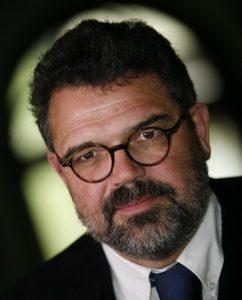
Stefan Troebst has been Deputy Director at the GWZO since 1999. He studied History, Slavic Studies, Balkan Studies, Political Science and Islamic Studies at the Free University of Berlin as well as at the Universities of Tübingen, Sofia (Bulgaria), Skopje (Yugoslavia, today Macedonia) and Indiana University in Bloomington, (U.S.A.) and wrote his doctoral thesis on “Mussolini, Macedonia and the Powers 1922-1930: The ‘Inner Macedonian Revolutionary Organization’ in the Southeast European Policy of Fascist Italy”. He was a research associate and university assistant for Eastern European Contemporary History at the Institute for Eastern European Studies at the Free University of Berlin and a postdoctoral fellow of the German Research Foundation. He habilitated on the topic “Trade Control – ‘Derivation’ – Containment. Swedish Moscow Policy 1617-1661” (published in Wiesbaden 1997); after holding a professorship in Modern History at the University of the Federal Armed Forces in Hamburg and a Heisenberg fellowship from the DFG, he was appointed Professor of Cultural Studies of Eastern Central Europe at the Philological Faculty of the University of Leipzig in 1999. Since 2015, he has been Professor of Cultural History for Eastern Europe at the Faculty of Social Sciences and Philosophy there, as well as Head of the Master’s programme “European Studies” at the Global and European Studies Institute (GESI) at the University of Leipzig.
During the conference, Professor Trobest will give a lecture on the following topic: Divide et impera: Moscow and the Macedonian Question, 1945-2025.
Prof. Sorin Antohi (Academia Europaea Bucharest Hub)
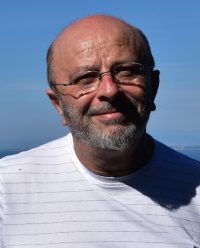
Sorin Antohi (born in 1957) is a historian of ideas, essayist, translator, and consultant based in Bucharest, where he has established in 2007 the Orbis Tertius / A Treia Lume Association, specialized in conferences and publications. He has studied English, French (University of Iași, Romania), and History (EHESS, Paris). A former professor of history, he has taught mainly at the University of Michigan (Ann Arbor), the University of Bucharest, and the Central European University (CEU) in Budapest (where he has also served as Academic Pro-Rector and has founded Pasts, Inc. Center for Historical Studies). He has conducted research at universities, institutes of advanced study and other institutions in Freiburg-im-Breisgau, Bielefeld, Braunschweig, Stanford, Vienna, Essen, Berlin, Leipzig, etc. He has lectured, participated in, (co)organized conferences, (co)directed academic projects in more than thirty countries. Among others, he has served as a member of the Board of the International Committee of Historical Sciences, and a Secretary General of the International Commission for the History and Theory of Historiography, as well as on various editorial and foundation boards. He is a member of the Committee, Utopian Studies Society/Europe.
He has published widely on intellectual history, history of ideas, historical theory and history of historiography, as well as on Romania in European contexts. His main publcations include 13 books such as Utopica. Studii asupra imaginarului social (Bucharest, 1991, revised and enlarged in 2005—in Romanian) and Imaginaire culturel et réalité historique dans la Roumanie moderne. Le stigmate et l’utopie (Paris, 1999), as well as 8 (co)edited volumes such as Between Past and Future. The Revolutions of 1989 and Their Aftermath (Budapest and New York, 2000) and Narratives Unbound. Historical Studies in Post-Communist Eastern Europe (Budapest and New York, 2007). He has translated from English and French into Romanian 7 more books (with Mona Antohi).
The title of his lecture at the conference will be: The clash of Tsarist/Soviet/Russian imperialism with “Romanian imperialism”.
Prof. Henryk Głębocki (Jagiellonian University)
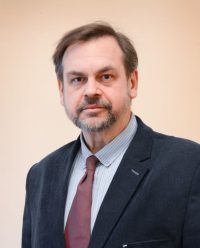
Employee at the Department of History of Eastern Europe, Institute of History, Jagiellonian University, and the Institute of National Remembrance in Kraków.
Research Interests: The history of Eastern Europe, with a focus on the Russian and Soviet empires and their policies towards multinational peripheries, including Russia’s treatment of its subordinate nations and the “borderlands” of the empire. Key topics include Russification, the rise of nationalism, the development of national consciousness, and the contemporary situation of the Russian Federation and post-Soviet states. Research also covers Polish-Russian and Polish-Soviet relations, particularly the policies of Russia and the Soviet Union towards Poland, the Polish people, and the Polish cause, as well as the reciprocal impact of these policies on Russia itself.
Additional areas of interest include the history of the Polish People’s Republic, with an emphasis on opposition and social resistance to the communist regime within the broader context of Eastern Europe. Research also explores the history of the communist apparatus of repression, examining the structures, methods, and mechanisms of the police state in its interactions with society and opposition groups.
The topic of his conference lecture will be: Polish question in politics and geopolitics of the Russian Empire: between Catherine II and Lenin (from a global perspective).
Prof. Jan Holzer (Masaryk University, Brno)
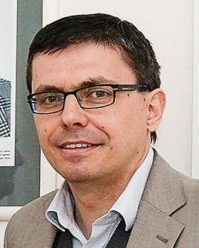
Political Scientist and Professor in the Department of Political Science, Faculty of Social Studies, Masaryk University, Brno, Czech Republic.
Professor in the Department of Theory of Politics and Methods in Political Science, Faculty of Political Science, Maria Curie-Sklodowska University, Lublin, Poland.
Director of the E.MA Program at the European Inter-University Centre for Human Rights and Democratisation (EIUC), Venice.
President of the Czech Political Science Association.
Author, co-author, and co-editor of thirteen monographs, including Czech Security Dilemma: Russia as a Friend or Enemy? (Palgrave Macmillan, 2019; with M. Mareš et al.), Militant Right-Wing Extremism in Putin’s Russia: Legacies, Forms, and Threats (Routledge, 2018; with M. Mareš and M. Laryš), and Czech Politics: From West to East and Back Again (Barbara Budrich Verlag, 2017; with S. Balík et al.), as well as over a hundred articles and book chapters.
Research Interests: Theory of Non-Democratic and Hybrid Regimes, Democratization Theory, Political Regimes in Eastern Europe and the Former Soviet Republics (with a particular focus on Russia), and Modern Czech Politics.
During the conference, Prof. Holzer will give a lecture: The contemporary Russian political regime: on the road to ideology?
Prof. Endre Sashalmi (University of Pécs)
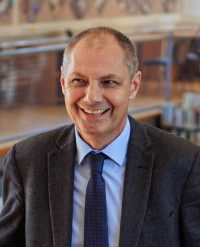
Endre Sashalmi is a professor of History at the Department of Medieval and Early Modern History at the University of Pécs (Hungary), and is a Doctor of the Hungarian Academy of Sciences. His main fields of academic interest and research are comparisons of Western and Russian political thought and political iconography from the 15th to 18th centuries, as well as the issue of state formation in Russia and in early modern Europe. He is the author of the book: Russian Notions of Power and State in a European Perspective, 1462-1725. Assessing the Significance of Peter’s Reign.
The professor Sashalmi will give a lecture: Remarks on Understanding the Russian Empire, its Evolution and its Ideology (1547-1784): With a View on Recent Approaches.
Prof. Mark Bassin (Södertörn University, Stockholm)
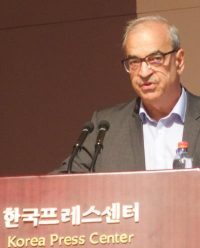
Prof. Bassin is affiliated with the Center for Baltic and East European Studies and the Department of the History of Ideas. He holds a PhD in historical geography and Russian intellectual history from the University of California-Berkeley. He has held faculty positions at the University of Wisconsin-Madison, University College London, and the University of Birmingham, with visiting appointments at UCLA, the University of Chicago, University of Copenhagen, University of Pau, and Collegium Civitas in Warsaw.
Mark has received numerous research grants (Fulbright-Hays, British Academy, DAAD, NEH, Baltic Sea Foundation) and personal fellowships from the Woodrow Wilson Center, Remarque Institute, American Academy in Berlin, Leverhulme Trust, and more.
Prof. Bassin research focuses on intellectual history in East and Central Europe, particularly Russia and Germany, exploring identity, politics, and ideologies in the 19th and 20th centuries. With a background in human geography, he examines the spatial aspects of identity formation, including Russia’s position between Europe and Asia and the German concept of Mittellage. He also studies the representation of nature and identity in Soviet-era art and the history of Geopolitik in European political thought.
Currently, he is completing a monograph on the ideas and legacy of Soviet historian and geographer Lev Nikolaevich Gumilev.
Prof. Bassin’s conference lecture will be: Empire as Civilization in Putin’s Russia.
Prof. Serhii Shumylo (National Academy of Sciences of Ukraine)
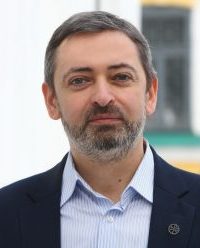
He completed his PhD in History at the National Academy of Management Personnel of Culture and Arts, with a dissertation on the “Development of Ukrainian-Athonite Spiritual and Cultural Ties in the XVII and First Third of the XIX Centuries” (specialty: Theory and History of Culture). He later defended a doctoral thesis on “The Athonite Elder and Polemic Writer Ivan Vyshenskyi and His Spiritual Heritage (second half of the XVI – first half of the XVII centuries)” at the Faculty of Theology, University of Prešov, Slovakia. In 2021, he participated in a four-month art history and museum studies course at Harvard University titled “Tangible Things: Discovering History Through Artworks, Artifacts, Scientific Specimens, and the Stuff Around You.”
He has received research fellowships from the British Academy (2023) and the Dumbarton Oaks Research Centre at Harvard University (2022). He has organised over 20 international conferences on the spiritual and cultural heritage of Mount Athos and the history of the Ukrainian Church, supported by institutions such as the École Pratique des Hautes Études (Paris), the Keston Institute (Oxford), Columbia University, and the World Council of Churches. He has also lectured and held exhibitions on Ukrainian heritage at venues across Europe and beyond, including Athens, Paris, London, Rome, and Geneva.
His research includes historical and archaeological work on the Ukrainian “Cossack” skete “Black Whirlpool” (“Mavroviros”) on Mount Athos, founded by the Cossacks in the 1740s. His discoveries were published in separate books. He also uncovered and published rare letters from St. Paisius Velichkovsky to Cossack Ataman Petro Kalnyshevsky and Metropolitan Arseniy Mohyliansky of Kyiv. Additionally, he uncovered documents detailing the charitable activities of prominent Ukrainian Cossack and noble families (e.g., Ivan Samoilovych, Ivan Mazepa) towards Athos monasteries in the XVII–XVIII centuries. His biography of Ivan Vyshensky helped lead to his canonization as a saint by the Ukrainian Orthodox Church in 2016. He has published numerous works on the historical, spiritual, and cultural connections between Ukraine and Athos.
Conference lecture by Prof. Shumylo: “Edict” by Moscow Patriarch Kirill and the World Russian People’s Council on the “Holy War”.
Prof. Dr. Georgiy Kasianov (Maria Curie-Skłodowska University in Lublin)
 Georgiy Kasianov was born in Chelyabinsk in the southern Urals in 1961. He obtained a degree in history and social sciences from the National Pedagogical University of Kiev in 1983 before completing his doctorate in history at the National Academy of Sciences. Professor Kasianov has been Head of the Department of Contemporary History and Politics at the Institute of Ukrainian History at the National Academy of Sciences in Kiev for more than ten years. He is a past scholar of the Kennan Institute (2003) and the Fulbright Program (1995, 2019). His research interests are the social, political and cultural history of Ukraine in the 19th and 20th centuries. He is the author of, among others, Memory Crash: Politics of History In and Around Ukraine, 1980s–2010s (2022).
Georgiy Kasianov was born in Chelyabinsk in the southern Urals in 1961. He obtained a degree in history and social sciences from the National Pedagogical University of Kiev in 1983 before completing his doctorate in history at the National Academy of Sciences. Professor Kasianov has been Head of the Department of Contemporary History and Politics at the Institute of Ukrainian History at the National Academy of Sciences in Kiev for more than ten years. He is a past scholar of the Kennan Institute (2003) and the Fulbright Program (1995, 2019). His research interests are the social, political and cultural history of Ukraine in the 19th and 20th centuries. He is the author of, among others, Memory Crash: Politics of History In and Around Ukraine, 1980s–2010s (2022).
His conference presentation will focus on the topic:
My Brother Abel: Ukraine in Russia’s Historical Policy, 1990s–2020.
Hakob Matevosyan, PhD (Center for Eastern European and International Studies – ZOiS, Berlin)
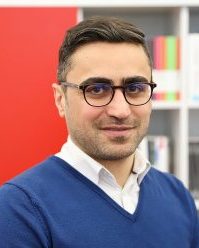 Hakob Matevosyan is a sociologist with a research focus on migration, diaspora, and transnationalism. He is particularly interested in the interplay of memory and historical narratives in the making of social generations and in the questions related to diaspora identities, descent, and power relations within and around generations of migrants. Since February 2023, Hakob Matevosyan has been a postdoctoral researcher at Centre for East European and International Studies (ZOiS).
Hakob Matevosyan is a sociologist with a research focus on migration, diaspora, and transnationalism. He is particularly interested in the interplay of memory and historical narratives in the making of social generations and in the questions related to diaspora identities, descent, and power relations within and around generations of migrants. Since February 2023, Hakob Matevosyan has been a postdoctoral researcher at Centre for East European and International Studies (ZOiS).
As the recipient of the Global Excellence Scholarship of the Calouste Gulbenkian Foundation, Portugal, Hakob Matevosyan completed his doctorate at Leipzig University (Department of Cultural Sociology, Graduate School Global and Area Studies). His doctoral thesis was awarded the 2020 Doctoral Prize from the Research Academy Leipzig. He holds master’s and bachelor’s degrees in sociology from the Yerevan State University, Armenia. Before joining ZOiS, Hakob Matevosyan was a postdoctoral researcher at the Leibniz Institute for the History and Culture of Eastern Europe (GWZO). He also worked as a research fellow at the Department of Cultural Sociology at the Institute of the Study of Culture, Leipzig University. After completing an internship at the UNDP/UNV in Yerevan, he functioned as the Head of the Data Processing and Management Department of the Institute of Political and Sociological Consulting (now Breavis), Armenia.
His conference presentation will be titled: Russian-speaking Residents of Canada and Germany versus Putin’s Imperialist Propaganda.
Dovile Budrytė, PhD. (Georgia Gwinnett College)
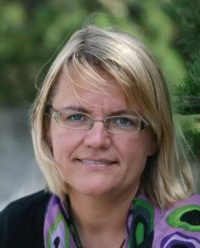
Dovile Budrytė is Professor of Political Science at Georgia Gwinnett College, and she works on EUROPAST project at Vilnius University. She serves as Invited Researcher at Vytautas Kavolis Transdisciplinary Research Institute at Vytautas Magnus University. Her research interests include memory politics, trauma, Holocaust justice and gender studies. Her publications include articles on various topics related to minority rights and memory politics, one single authored and five co-edited books, including Memory and Trauma in International Relations: Theories, Cases and Debates (co-editor with Erica Resende), and Defending Memory in Global Politics: Mnemonical In/Security and Crisis (co-editor with Erica Resende and Doug Becker).
Her conference presentation will be titled: The Russo-Ukrainian War and the Decolonization of Memory in Lithuania (online participation)
Tunc Aybak, PhD. (Middlesex University, London)
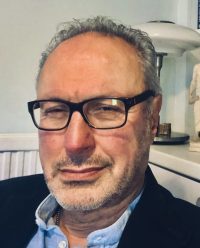
Dr Tunc Aybak is currently the director of International Politics Programme at School of Law, Middlesex University. He graduated from School of Political Science, Ankara University in International Relations and Diplomacy. He completed his PhD at the University of Hull in International law and Politics. He teaches on BA International Politics and MA International Relations programmes specializing in critical studies in geopolitics and diplomacy, foreign policy analysis, international political economy and politics of Europe. His main research areas and field work include Turkish and Russian foreign policy energy geopolitics and pipelines with particular reference to human security issues in the Black Sea and the Middle East area. His most recent publication includes Russia, the Black Sea region and Security after the invasion of Ukraine in Hough, Moran & Pilbeam, International Security Studies: Theory and Practise (3rd ed), Routledge: London (2025 forthcoming).
The topic of his conference lecture will be: Putin and the Invention of the Third Rome at the Service of Russian Imperialism
Hanna Bazhenova, PhD. (Institute of Central Europe; Maria Curie-Skłodowska University in Lublin)
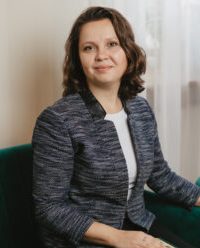
Hanna Bazhenova is a historian, legal scholar, political scientist, and the author of six scholarly monographs and numerous publications on Central European issues. She holds a PhD in World History from Taras Shevchenko National University of Kyiv (2008) and a PhD in History from John Paul II Catholic University of Lublin (2014). From 2013 to 2018, she served as a Research Fellow at the Institute of East-Central Europe. She is currently a Senior Analyst at the Institute of Central Europe (since 2018) and Assistant Professor at the Laboratory for International Memory Studies at Maria Curie-Skłodowska University in Lublin (since 2021).
The title of her lecture at the conference will be: Reviving Empire: The Evolution of the National Idea in Post-Soviet Russia
Khatuna Chapichadze, PhD. (Georgian Technical University, Tbilisi)
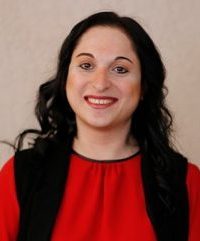
Khatuna Chapichadze is a Ph.D. in Social Sciences, political scientist, Associate Professor and a Supervisor of the Bachelor’s Educational Program in European Studies at the Department of Politics and International Relations, Faculty of Engineering Economics, Media Technologies and Social Sciences, Georgian Technical University (GTU, Georgia). She has also been an Adjunct Faculty Member at the Department of Political Science, San Diego State University (SDSU), San Diego (CA, United States) and a Politics Professor at San Diego State University Georgia (SDSU-G) since 2017. Prof. Chapichadze is an Expert of the Central-European Institute of Research and Strategic Analysis CIRSA, Ostrowiec Świętokrzyski, Poland (since 2017) and has been a Visiting Professor at the Faculty of Humanities, AGH University of Science and Technology in Krakow (Poland) (since 2015), as well as a Lecturer at the Józef Gołuchowski University of Applied Sciences, Ostrowiec Św., Poland (since 2021). Since 2015, she also serves as a Member of the Editorial Board and a Reviewer of the Scientific Journal “Ante Portas – Security Studies”, indexed in Index Copernicus and ERIH PLUS and issued by the Józef Gołuchowski University of Applied Sciences (Poland).
Conference lecture by Dr. Chapichadze: Under the Shadows of the Russian Imperialism: Halting the Continuity of Georgia’s Modern National-State Identity Building (The European Perspective)
Przemysław Furgacz, PhD. (College of Business and Entrepreneurship, Ostrowiec Świętokrzyski)
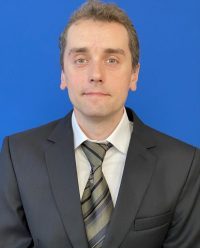
Defended PhD dissertation in Jagiellonian University in Cracow; since 2019 the Dean of the Faculty of Technical and Social Sciences; he gave lectures in Lithuania, Slovakia, Latvia and Georgia. He is a vicechairman for geoeconomics of the Polish Geostrategic Society since July 2020, a secretary of the Central-European Institute of Research and Strategic Analysis since March 2017 and a member of the European International Studies Association since January 2019. His research interests concentrates on the following fields: international political, economic and military relations, security policy, economic security, military science, international finances, advanced military technologies, geoeconomics, history, U.S.-China relations, the Middle East, the Central-Eastern Europe.
During the conference, Dr. Furgacz will deliver the lecture entitled: Russia on the War Economy Track: Armaments of the Russian Federation, 2022–2025
Lily Hamourtziadou, PhD. (Birmingham City University)
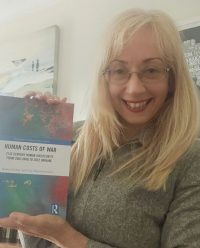
Dr Lily Hamourtziadou is Senior Lecturer in International Relations and Security at Birmingham City University, and Principal Researcher of the NGO Iraq Body Count. She is the author of the books ‘Body Count. The War on Terror and Civilian Deaths in Iraq’, ‘The Ethics of Remote Warfare’ and ‘Human Costs of War’. She has worked for the UNHCR and is currently working with the NATO Cooperative Cyber Defence Centre of Excellence (CCDCOE) as a human security expert.
The topic of her conference lecture will be: Russian Imperialism Through a British Prism
Yurii Latysh, PhD. (State University of Londrina, Brazil)
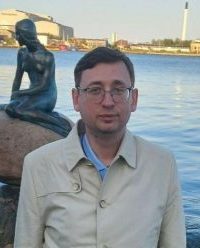
Dr Yurii Latysh, Visiting Professor at the State University of Londrina, displaced person from Ukraine. Yurii Latysh is a historian specializing in Memory Studies, Historiography, Ukrainian History, the Decembrist Movement, and Public Intellectuals. He holds a PhD in History from Taras Shevchenko National University of Kyiv (2007), where he also completed his MA (2004) and BA (2003) in History.
Dr. Latysh will give a lecture: De-Ukrainization: Russian Approaches to the Politics of Memory in Occupied Ukrainian Territories (online participation)
Nataliia Bulanova (Museum of the History of Kamianske)
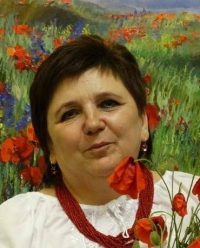
She is candidate of Historical Sciences and director of the Museum of the History of Kamianske, expert of the Ukrainian Cultural Foundation. Researcher of the history of Southern Ukraine, whose name is included in the directory “Researchers of Southern Ukraine”. Author of numerous publications in professional periodicals and scientific collections, periodicals and literary journals, participant in many symposiums and scientific conferences, including international ones. Research interests – history of religion, regional history, ethnology, museology. Author and co-author of numerous exhibitions, organizer of artistic and scientific events, festivals, conferences within the Museum of History of Kamianske and beyond.
Her conference presentation will be titled: Russian Imperialism and Occupied Ukrainian Museums: From Physical Destruction to Changing
Rasa Čepaitienė, PhD. (Genocide and Resistance Research Centre of Lithuania)
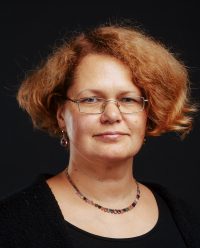
Historian, senior research fellow at the Lithuanian Institute of History, senior adviser at the Genocide and Resistance Centre of Lithuania, professor at the European Humanities University in Vilnius. Her expertise includes historical memory, identity politics, and totalitarian legacies in the Baltic region.
The title of her lecture at the conference will be: The Russian Factor in Lithuanian Historical Politics.
Iryna Prokopchuk, PhD. (State University of Trade and Economics, Kyiv)
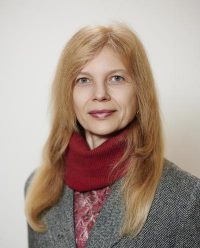
Dr. Iryna Prokopchuk is Associate Professor at the State University of Trade and Economics. She holds a PhD in Political Science and specializes in democratic transitions, civil society, gender, and political axiology. She previously taught at the National Aviation University and the National Pedagogical University of Ukraine.
The topic of her conference presentation will be: Russian Political Myths as Geopolitical Technology
Rajendra Singh Thakur (Goethe University, Frankfurt)
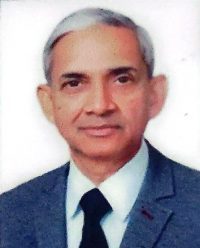
Major General (Dr.) Rajendra Singh Thakur is a retired Indian Army officer and military historian. He earned a PhD on UN involvement in Kashmir and currently pursues postdoctoral work at Goethe University on German responses to the 1857 Indian revolt. He lectures internationally and publishes on gender and war,
Conference lecture by Rajendra Thakur: Use of History and Energy as Propaganda Tools memory, and military studies.
Gilad Ben-Nun, PhD (Leipzig University),

is a Senior Lecturer at the Global and European Studies Institute and the Research Centre Global Dynamics (ReCentGlobe) at Leipzig University. His research and teaching focus on the history of international law, migration studies, and Jewish-Muslim relations. He was an EU Marie Curie Fellow at the Faculty of Law, University of Verona (2016–2018), and a Ford Foundation Fellow at the United Nations Institute for Disarmament Research (UNIDIR) from 2001 to 2002. His first monograph, published by Bloomsbury in 2017, was nominated for the 2017 US National Jewish Book Award.
From 2020 to 2021, he served as Visiting Professor of Israeli Studies at LMU Munich, and from 2021 to 2022, he held the Alfred Grosser Professorship at Sciences Po in Paris. He earned both his doctorate and habilitation at Leipzig University, and previously studied at the Hebrew University of Jerusalem.
His conference presentation will be titled: Revanchism’s replay and Carl Schmitt’s revival: Russia and Turkey’s resurgence of Neighbouring Military Occupations (NMOs) From 2008 South Ossetia to 2024 in Damascus.
Przemysław Łukasik, PhD. (University of the National Education Commission, Krakow)
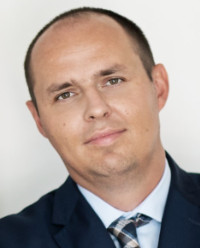
Dr. Przemysław Łukasik is a graduate of history and international relations, received his Ph.D. in Political Studies from the Department of American Studies of the Jagiellonian University in Cracow. He has been visiting fellow in the ‘Scholar in Residence’ program of the Goethe-Institute and the Institute for Advanced Study in Humanities in Essen, Germany. Editorial secretary (2011-2015) of the English-language historical scientific journal “Remembrance and Solidarity Studies In 20th Century European History”, published by the European Network Remembrance and Solidarity. He is an Assistant professor in the Institute of Journalism and International Relations of the National Commission University in Krakow. He is the head of the international research team History as an instrument of contemporary international conflicts (since 2023). He has lectured at universities in Germany, Spain, Greece and Italy, among others.
His conference presentation will focus on the topic: Russian Imperialism in the Eyes of Italian Academic Youth: Perceptions, Fears, and Narrative Changes After the Invasion of Ukraine.
Emily Ward (Birmingham City University)
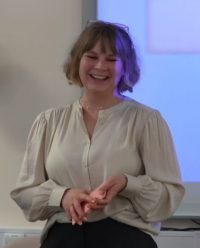
Emily Ward has recently completed university, holding a BA in Criminology including Security Studies and an MA in Security Studies, with a strong research focus on conflict, casualty recording, and human security. Her work explores how historical narratives and power structures shape contemporary perceptions and violence. Emily has presented her research at academic forums, including a peace conference and university policing lectures. She has independent and co-authored published papers on casualty documentation in Ukraine and spoke on the BBC’s segment for the Birmingham Bombings anniversary. Emily also volunteered online in Ukraine, contributing to community projects that deepened her understanding of societies during conflicts and local memory.
Her conference presentation will be: Imperial Echoes: How Historical Russian Imperialism Shapes Contemporary Narratives of Ukraine.
Parvin Ahanchi, PhD. (Baku Higher Oil School; A.A. Bakikhanov Institute of History and Ethnology, Azerbaijan National Academy of Sciences)
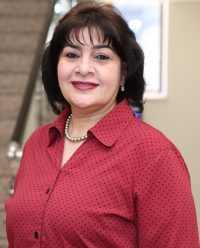
Parvin Ahanchi is Leading Researcher at Azerbaijan National Academy of Sciences’ Institutes of History and Archaeology and Ethnography and is an expert on the archival collections of Branobel and other oil producing companies of the first oil boom in Azerbaijan. Dr. Ahanchi was awarded a doctoral degree in history in 1993 at M.V. Lomonosov Moscow State University in 1993. Her international career furthermore includes a Research Fellowship at Max Plank Institute (Goettingen) of History in 1996, and during 2008-2009 she was a Fulbright Scholar and Honorary Fellow in the Central Asian Studies Program at the University of Wisconsin and University of California.
The topic of her conference presentation will be: Imperial Continuities: Tsarist, Soviet, and Post-Soviet Legacies of Azerbaijani Displacement in Karabakh and Armenia.
